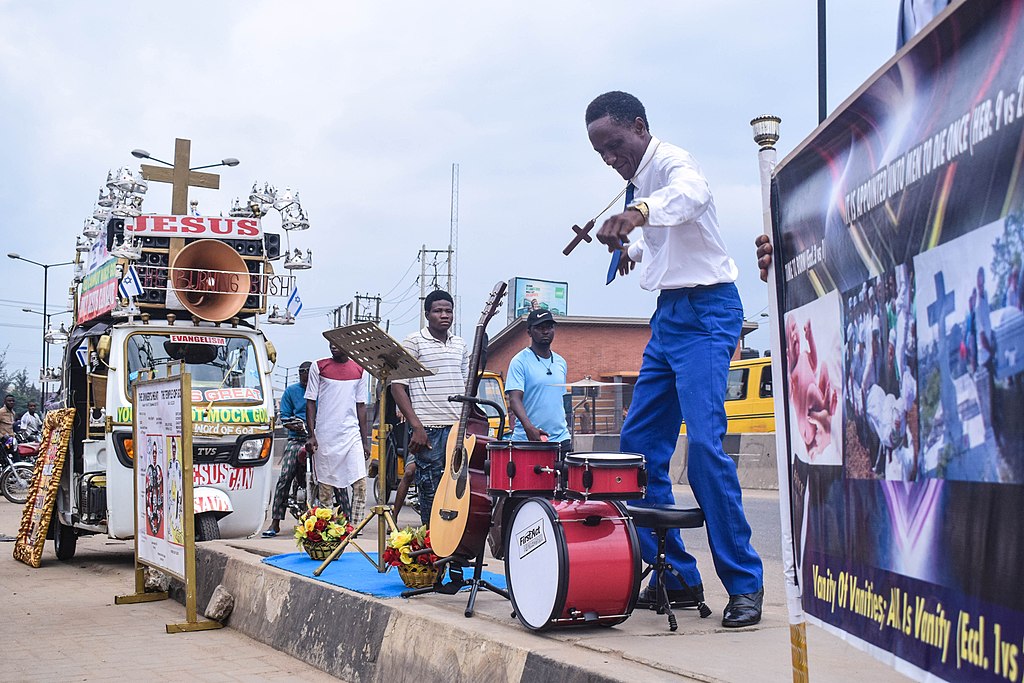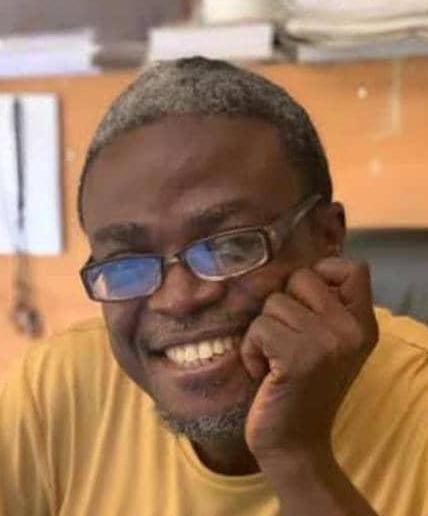
Ebenezer Obadare’s Pastoral Power, Clerical State: Pentecostalism, Gender, and Sexuality in Nigeria vigorously pushes the boundary of the political-theological predicament—the problem of how to figure out and configure the relationship between ecclesia and imperium, or the secular and the sacred—that troubles most societies grappling with the resurgence of the religious and its complicated relationship with the political. The new book, the second installment in a promised trilogy that started with the Pentecostal Republic: Religion and the Struggle for State Power in Nigeria (2018), opens up large theoretical vistas in the relationship between Pentecostalism, secularity, and postsecularism in postcolonial Nigeria. It presses Pentecostal studies into deeper reflection on the role God is supposed to play in world-making, and how that could shape the political future of the postcolonial Nigerian state.
Apart from its deep exploration of the political-theological predicament (which I will explore in this piece), Obadare plunges into the highly sensitive realm of the erotic and eroticism in the relationship between the Pentecostal pastor and gender dynamics. The relationship between religion and gender has remained an ever-contentious one, especially given the patriarchal orientation of pastoral power that defines Pentecostalism. However, projecting the pastor as “a masculine object of erotic fascination able to generate sexual frisson in his female congregants” (xix) not only opens up a dimension of the Pentecostalism-gender discourse that goes beyond the usual masculinist and sexual readings of Pentecostal pastors, it will also outline a discourse that will reel in African feminists and womanists.
Obadare’s book presses Pentecostal studies into deeper reflection on the role God is supposed to play in world-making, and how that could shape the political future of the postcolonial Nigerian state.
Specifically, Pastor Power, Clerical State makes a bold statement that interjects in the powerful contributions to Pentecostal studies, especially by the duo of Ruth Marshall and Nimi Wariboko. Yet Obadare differs from these two in his ability to take the political-theological predicament of the Nigerian state seriously; he combines personal observation, ethnography, and incisive analysis of the political significance, charismatic power, and social relevance of the Pentecostal pastor within Nigeria’s postcolonial milieu. Between them, Marshall and Wariboko expounded on specific issues and how they impinge on Pentecostal political dynamics. Wariboko’s Nigerian Pentecostalism (2014) takes seriously the ideas of epistemology, spirituality, and community as means of political engagement within the Nigerian state. Pentecostal spirituality, for him, is founded on the conviction that spiritual information can be mined to aid the search for meaning by the Pentecostal believers. And it is that epistemological quest that conditions the relationship between the Pentecostals and the Nigerian state. In Political Spiritualities: The Pentecostal Revolution in Nigeria (2009), Marshall also articulates Pentecostalism as a project of rebirth that positions itself in oppositional engagement with the corrupt Nigerian state against which a new mode of government must emerge.
My own research into African Pentecostal political philosophy attempts to excavate the specific African inflection of the politico-theological predicament, especially within the context of postcoloniality. In my reading of Marshall and Wariboko, and in reaction to their arguments, I make the case for what I call the “theology of complicity” that implicates both the Pentecostal ecclesiastical order and the political class in the socioeconomic conditions and predicaments of the postcolonial Nigerian state. I argue specifically that “African Pentecostalism can only be understood as a practice mediated by its leadership and by pastoral power. The leadership’s mediation of political exchanges requires a theology of complicity and duplicity, deriving from the state–society relationship, which determines the Pentecostals’ mode of reacting to political events and dynamics” (224). And this, I further contend, is a justifiable reason for why the vision of a Pentecostal political order—arising from Pentecostalism’s this-worldly political program that seeks to displace the corrupt postcolonial state—is unrealizable. At best, Pentecostalism is possible as politeia; only a certain way of reacting in the political space (237).
Pastoral Power, Clerical State deepens this argument, especially in reading the Pentecostal pastor as a “political entrepreneur”—“someone who reinforces his authority within the religious domain by projecting the same within the political domain—and vice versa” (61). However, it is more bullish in its articulation of the relationship between religion and the state in Nigeria. But while my arguments, as well as Marshall’s, Wariboko’s, and those of many other scholars already participate in Pentecostalism’s inflection of the politico-theological predicament of the Nigerian state, Obadare’s Pastoral Power, Clerical State bluntly overrides my hesitation in conceiving the possibility of a Pentecostal political order. He makes a distinct and provocative contribution to the unraveling of the politico-theological predicament by dubbing Nigeria a “clerical state”—specifically, a Pentecostal republic.
This, all by itself, raises red flags and queries around Nigeria’s hazy secularity. It is hazy because the Nigerian Constitution does not clearly position the Nigerian state as a secular one in ways that distinctly make the secularity discourse, and Pentecostalism’s interjection, clear-cut. And yet, Obadare overrides that haziness by declaring the Nigerian state a clerical one: that argument pushes the Pentecostal-politics conversation in Nigeria along a path that provokes deeper reflections around the depth of Pentecostalism’s influence in shaping postcolonial Nigerian society. In this regard, Obadare forces on Pentecostal studies the question of whether Nigeria is a postsecular state, or Pentecostalism is instigating an awareness of the urgency of secularism. More precisely: can Nigeria be postsecular before it is secular, given Pentecostalism’s attempt at enforcing a postcolonial City of God?
Obadare makes a distinct and provocative contribution to the unraveling of the politico-theological predicament by dubbing Nigeria a ‘clerical state’—specifically, a Pentecostal republic.
The argument for positioning Nigeria as a clerical state is quite brilliant in its simplicity: Pentecostal pastors have stepped into the breach created by the abdication of social responsibility to the Nigerian state by her intellectual class. In his words: “The contemporary Pentecostal pastor is the ultimate beneficiary of the epistemic chasm created by the ideological bereavement of the Nigerian intelligentsia, paralleling the way in which religious forces (Pentecostalism in the Nigerian case) have profited from the collapse of what Mary Kaldor refers to as ‘emancipatory ideologies’” (46).
The argument has two related dimensions—the intelligentsia’s loss of prestige and authority, and the Pentecostal pastor’s emergence as a spiritual and political entrepreneur, with an erotic masculinity to boot! The words that Obadare uses in pushing this position—“surrender,” “delegitimizing,” “transfer of prestige and authority,” “evacuation,” etc.—are too charged and presumptive and thus overlook the continued presence and relevance of the intelligentsia on the Nigerian sociopolitical and cultural scenes. One gets the sense that Obadare overstates not only his arguments about the influence of the Pentecostal pastors but also the vitiation of the intellectual class. He writes, for instance, that given the ascendancy of the pastors, the professor desires to become a pastor “to overcome his comparative social anonymity” (xvii)! The pastoral profession has become so glamorous and fundamental that it has become the number one choice for the unemployed. These are very difficult claims to justify. This is essentially because pastoral power is facing a massive challenge facilitated by a value reorientation, mostly fueled by the celebrity- and crime-induced belief that one can make worldly progress by just being smart (in a negative sense) and artistically creative, rather than being spiritual or hard working. It is thus difficult to see how such an increasingly abnormative context reinscribes pastoral power. Abnormativity pushes the logic of amorality consistently in the negative and immoral direction. If this is correct, then it turns on its head the argument that “it is when this desire for a ‘Me’ does not find an outlet in pastoring that we see the desperation to be ‘worth something’ spill over into an assortment of pyramidal ventures: ‘419,’ ‘Yahoo Yahoo,’ ‘MMM,’ and other get-rich-quick schemes” (53). Nigerians dabble in dubious endeavors for so many reasons. I wonder how the failure to become a pastor leads straight to crime! In essence, the devitalization of the Nigerian intelligentsia does not translate into its decapitation.
The issue gets yet more complicated. This is because Obadare’s “impatient anti-clericalism” (5, emphasis added) situates pastoral authority within the “popular economy” in a way that smoothes over its cogent relevance. For him, the waning of the intelligentsia and the weakening of the public space accentuates the “generalized metaphysical bafflement that is the foundation of clerical authority” (47–48). To read Pentecostalism solely in terms of a metaphysical bafflement misses its significance as a cogent re-enchantment of the world; a reading critical to postsecularism. With Pentecostalism, the sacred, to quote Jean Comaroff, “defies the telos of disenchantment” beloved not only by modernization theorists but also all anticlerical scholars (61). Postsecularism reintroduces God back into the process of world-making as a fundamental critique of the modernist project, and this is even more fundamental within the context of the postcolonial societies and their myriad predicaments. Essentially, the existential meaninglessness that lies at the core of postcolonial subjectivity cannot be answered by the modernist project, in the same way, according to Jurgen Habermas, that the internal solidarity of liberal societies cannot be sustained solely on postmetaphysical and nonreligious foundations. Obadare’s impatient anticlericalism prevents a nuanced understanding of how the secular and the sacred implicate each other in the Nigerian postcolony. The postsecular is a critical challenge to secularism’s self-understanding arising from its internal contradictions. The secularist understanding of the world and of religion fails significantly to mediate between the perfectibility and pervertibility of religion; Obadare focuses solely on the latter in a state that is barely secular.
By so doing, his impatient anticlericalism impudently overlooks the possibility of what Nimi Wariboko calls the Pentecostal principle as a framework of new and enchanting beginnings that enable the rethinking of the human future. Pentecostalism represents, for Wariboko, “the capacity of social existence to begin something new” (viii). This understanding of Pentecostalism—as a playful theological framework—opens an alternate interpretation that Obadare’s instrumentalized or zero-sum analysis in Pastoral Power, Clerical State precludes. As a postsecular source of new beginnings, Pentecostalism presents significant potential within the context of reconstructing Nigerian society as (post)secular; a critical attempt to rethink Nigeria with God at the core of postcolonial world-making. What does it imply to rethink he Nigerian society within the rubric of a postsecularity that takes God and the perfectibility of Pentecostalism seriously? Pastoral Power, Clerical State dismisses such a possibility too soon.
Obadare’s impatient anticlericalism prevents a nuanced understanding of how the secular and the sacred implicate each other in the Nigerian postcolony.
The simple lesson here for research in Pentecostalism and Pentecostal studies is not to take Pentecostalism as an undifferentiated monolith, nor to take the heterogeneity of pastoral power for granted. There are so many dimensions to Pentecostalism and even the spiritual influence of the Pentecostal pastor, that defy a one-off negative summation. Pentecostal spirituality can help orient a (post)secular if the perfectibility of religion is factored into the reconstruction of the postcolonial society. But then, the pastors must be properly situated within the Nigerian political and socioeconomic context. Within what we can designate as the space of influence in Nigeria, I doubt that even the pastors achieve the same level of significance that celebrities and criminals now command. Burna Boy, the Afro-pop celebrity, has as much capacity to generate sociocultural and political influence as Pastor Enoch Adeboye. I would populate that space with celebrities, pastors, and the intelligentsia, without inflating the ascendancy of the pastors.

